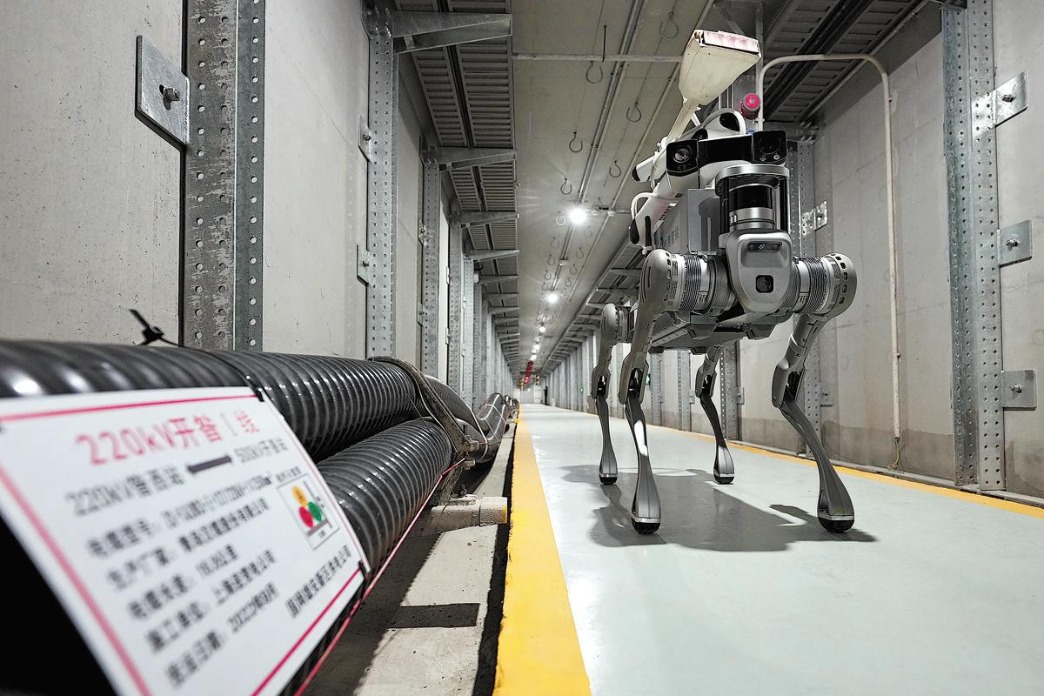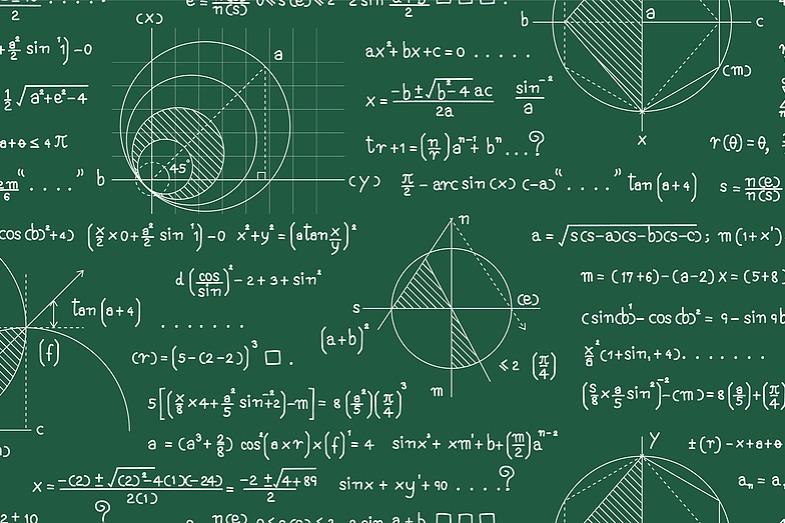Research paper challenges US trade deficit claims
By YIFAN XU in Washington | chinadaily.com.cn | Updated: 2025-04-02 10:29

Domestic factors, primarily US fiscal policy and consumption patterns, are the main drivers of America's persistent trade deficit, not foreign trade practices, trade liberalization or the dollar's global status, according to an economist.
"It makes little sense … to blame the trade deficit for the decline in manufacturing employment," said Maurice Obstfeld, a senior fellow at the Peterson Institute for International Economics (PIIE), during the Brookings Papers on Economic Activity (BPEA) Spring 2025 Conference on March 27. His paper, "The US Trade Deficit: Myths and Realities", directly challenged beliefs often cited in political discourse as the US government intensifies trade measures, drawing concern from international partners, including China.
The trade deficit remains a long-standing aspect of the US economy, persisting in nearly every quarter since 1976 and averaging 3.1 percent of GDP annually since 2008, according to Obstfeld's research. The imbalance has increasingly become a political focal point.
Recent US actions have heightened global economic uncertainty, including a new round of tariffs targeting the US' major trading partners China, the European Union, Canada and Mexico.
US President Donald Trump will announce a major trade policy change on Wednesday, April 2, when he plans to introduce reciprocal tariffs based on each country's trade practices, with a 20 percent tariff on most imports and a 25 percent tax on foreign-made vehicles.
Additionally, a proposal from the US Trade Representative's Office to impose extra port fees on Chinese ships faces strong opposition, with critics arguing it could disrupt supply chains and increase costs for US consumers. From China's perspective, such unilateral measures represent a trend toward protectionism that undermines global trade norms and harms mutual economic interests.
Obstfeld said the primary cause of the US deficit was not trade policy. He explained that manufacturing's share of employment naturally decreases as economies become wealthier, irrespective of their trade balance.
"US trade deficits are high and likely to rise, notwithstanding new and prospective tariffs," Obstfeld wrote, pointing to domestic macroeconomic fundamentals and suggesting that recent US tariff policies are unlikely to significantly close the trade gap because they don't address the root causes related to national saving and investment.
Obstfeld also rejected the notion that the dollar's role as the world's premier reserve currency forces the US into running deficits. He said that the global economy could acquire dollars through various financial transactions, not solely through trade imbalances.
Obstfeld said that data shows that gross international financial flows vastly exceed the size of the US current account deficit, indicating ample mechanisms for dollar acquisition outside of trade surpluses with the US.
Regarding the role of foreign capital inflows, often attributed to a "global saving glut" where countries like China save excessively, Obstfeld said that the US is not merely a passive recipient.
"The trade deficit reflects an interplay of foreign and US macroeconomic factors," he said.
While acknowledging influences like China's high saving rate, Obstfeld said that US fiscal policy plays a dominant role in shaping national saving and, consequently, the trade balance.
China was a significant topic in the discussion, given its large trade surplus with the US and its position as a major economic competitor. Obstfeld pointed out the impact of China's entry into the World Trade Organization in 2001, which significantly boosted its exports and increased competition for US industries. However, he said it is not correct to attribute the entire US deficit issue to China.
"China is a big deal, but China is far from everything," Obstfeld said, calling for a broader view.
He mentioned the "China shock" experienced in the 2000s, acknowledging the negative impact of rapid import growth from China on some US manufacturing communities. Yet, he said that "shock" was significantly amplified by concurrent US domestic factors, such as the housing bubble and expansionary fiscal policy, noting "US macro conditions play a leading role".
At the panel, providing commentary on Obstfeld's paper were Brent Neiman, an economics professor at the University of Chicago Booth School of Business, and Fabrizio Perri, an assistant director and monetary adviser at the Federal Reserve Bank of Minneapolis.
Neiman expressed some reservations about the absolute certainty that tariffs could not impact the deficit, but he agreed with Obstfeld that tariffs are a costly and suboptimal policy tool. Neiman also said that trade policy instruments like tariffs are increasingly being used to pursue noneconomic objectives, potentially jeopardizing international economic cooperation.
Perri analyzed the connections between tariffs, employment and the trade balance. Using a simplified economic model, he analyzed how tariffs could potentially shift employment toward less efficient domestic sectors protected by the tariffs.
He said the tariffs' potential "positive but small impact" on the trade deficit comes at the cost of lower overall economic welfare and productivity. "Tariffs make foreign goods more expensive," Perri said, emphasizing that their ultimate effect on the overall trade balance, which depends on how they influence total national consumption and investment, remains theoretically ambiguous and depends heavily on other economic adjustments.
Obstfeld warned about the considerable risks associated with the current US trade strategy, which is heavily reliant on tariffs. "The effect of increased tariffs isn't clear because, although they will reduce imports, they also will reduce US exports as other countries retaliate and as a stronger dollar makes US goods and services more expensive abroad," he said, mentioning that retaliatory measures, particularly from major trading partners like China, could further disrupt global commerce.
Obstfeld also cautioned against political pressure on the Federal Reserve to lower interest rates simply to weaken the dollar and potentially improve the trade balance. "Unless the US economy moves into recession, a substantial interest rate cut now would be inflationary," Obstfeld wrote in his paper.
"If Congress passes a budget that raises [fiscal] deficits, the situation is just going to get worse, notwithstanding any tariffs," he said at the conference.
The experts' discussion at the BPEA conference underscored a potential disconnect between current US policy approaches and the underlying economic drivers of the trade deficit identified in Obstfeld's research. For trading partners like China, which has consistently advocated for addressing trade imbalances through dialogue and structural reforms rather than punitive tariffs, the panel's focus on US domestic factors may resonate with that position.
Obstfeld's analysis strongly suggested that the US could more effectively address its trade deficit by managing its own fiscal situation. "US policies like fiscal consolidation can reduce the trade deficit," he said, offering a path focused on domestic adjustments rather than trade barriers that risk international friction and economic inefficiency.
yifanxu@chinadailyusa.com
























